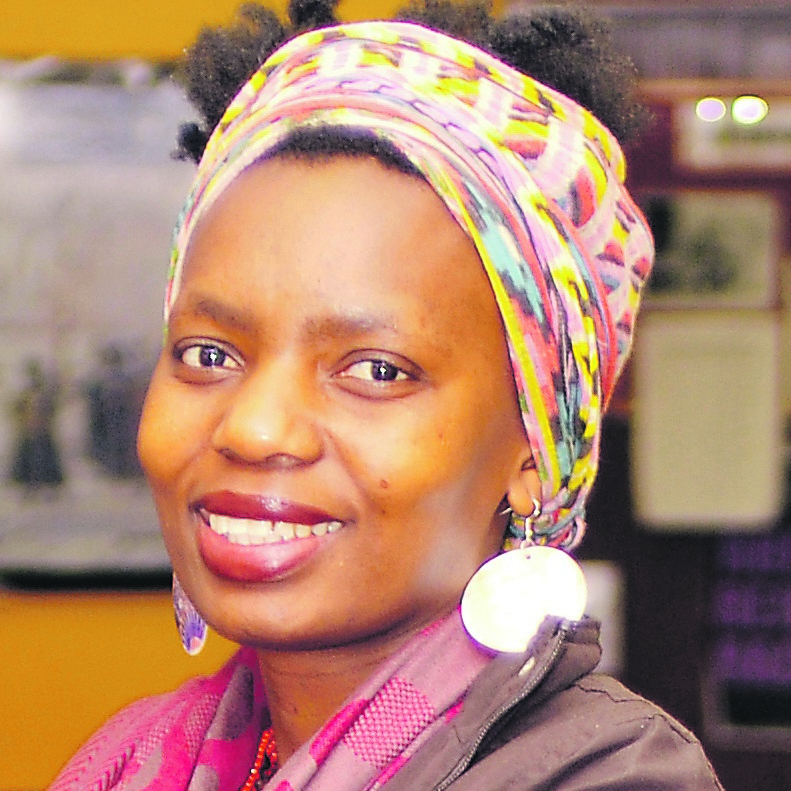
Professor Nox Makunga and Dr Nomalanga Mkhize are exceptional women. They are among the 3% of black female researchers with doctorates from higher education institutions.
They represent South Africa’s largest demographic group – black women – that is the least represented in the country’s higher education sector, according to the latest research and development survey.
Amid growing calls to decolonise the country’s university curriculum and transform its academic system, the numbers show that the demographic of researchers and academics is skewed towards white men and women.
The latest National Survey of Research and Experimental Development, released last month, found that there were just more than 2 100 black female researchers in the country in 2013/14, accounting for 12% of the total number of humanities, social science and natural science researchers in the country.
The survey, produced annually by the Human Sciences Research Council, is a litmus test of South Africa’s research and development output and resources, including its human capital. There were 18 212 researchers in the higher education sector in 2013/14.
White men accounted for the largest percentage (at 28%), followed by white women (27%) and black men (18%). Indian men and women (both at 4%), and coloured men and women (both at 3%), held substantially lower percentages. Of all groups, the proportion of black female academics with a PhD was the lowest, at 23% – 494 women.
“At this point, I can’t tell you where the problem is,” Phil Mjwara, department of science and technology director-general, told City Press. “We’re still investigating.”
The department, through the National Research Foundation (NRF), is the major funder of postgraduate bursaries and research grants in the country, and is responsible for the pipeline of future researchers.
In her 2014 budget vote, Science and Technology Minister Naledi Pandor announced that the NRF would increase the ratio of black graduate students funded from 63% in 2013/14 to 71% in 2016/17, and the ratio of women funded from 53% to 55%.
“This is part of building the pipeline to address this challenge,” Mjwara said.
The department also has other initiatives, such as the annual Women in Science awards, to raise the profile of female scientists.
Last year, it announced the establishment of 42 research chairs (the SA Research Chairs Initiative) – prestigious and well-funded academic positions that focus on research and postgraduate training – solely for women.
Pandor said at the launch: “The SA Research Chairs Initiative is not a development programme and ‘the 42’ are not quota appointments. The 42 research chairs will give women an opportunity that men have, for far too long, felt entitled to. It takes the systemic bias and gender gatekeeping out of the programme.”
It does not, however, address these systemic obstacles for other women in academia, and those felt more acutely by black women.
“The system is not designed to produce [academic] replacements that are largely black and 50% women,” says Mkhize, a lecturer in Rhodes University’s history department. The South African higher education system is an “organic” system that will continue to reproduce the structures and barriers that already exist within it, she says.
“Even while the state recognises this is an issue, it doesn’t put enough mechanisms in place to actively say: ‘In 15 years, this is what we want.’”
She says that a major reason she became an academic was because of mentoring and support from her former head of department, Professor Paul Maylam.
“You have to actively take an interest in black women and help them through. Often, black women don’t think that it is something they could go for.”
A number of issues converge on black women, pushing them out of the higher education system economically, biologically and socially.
Mkhize, who is the main breadwinner in her household, says that the financial burden of going into research discourages previously disadvantaged students, who often have to support their siblings.
“Every single black woman I know here [at Rhodes] is usually a breadwinner for somebody. They have been educated so that they can work, not just for themselves but for the rest of their family,” Mkhize says.
This family often includes extended relations, such as cousins, nieces and nephews.
Women – of all races – are also often forced to choose between having a career and having a family, which involves juggling maternity leave, childcare and family obligations.
“The social and moral choices that women make around parenting or raising members of their own family are different to the kinds of decisions that men can make,” Mkhize says. “They don’t clash with [men’s] careers as much as they do with women’s.”
Makunga, a medicinal plant biotechnologist at the University of Stellenbosch, says that there are not many academic positions available and “to stay competitive, you have to sacrifice quite a few things. It isn’t an eight-to-five job.”
But it is not enough for a black female academic to be good at her job. She also has to be able to withstand and address the other pressures exerted on her.
“I work with very hard-working women,” Mkhize says. “How many people are [prepared to do] that? Like, 10%. To say: ‘I’m going to work really hard, do my PhD, be a lecturer, take care of my family …’ How many people can do that?
“You’re not saying: ‘We need to select a broad range of black women.’ With white men, you’ve got a good gradation: you’ve got your good super-super guy, and then you’ll just have your average mediocre white guy … He’ll get through the system because his wife does all the housework anyway.
“It’s the same with black male academics; there’s a wife at home. I’m the breadwinner. My husband thinks he’s a feminist, but clearly I’m doing the cooking.”
Aside from the pressurised job environment and family obligations, there are social stigmas attached to research careers, Makunga says.
“When I was doing my PhD, one of my really close friends kept saying to me: ‘What are you doing? You’re putting yourself out of the market.’”
He was referring to finding a partner.
“I think there may be those stereotypes … that this is not the place for black women,” she says.
“Within an academic environment, guys are far more forceful in terms of getting promoted, earning better salaries.
“They don’t undermine themselves – instead, you often find that they are egotistical about their capabilities,” she says.
Asked what interventions were needed to address this inequality in higher education institutions, both Mkhize and Makunga cite basic education.
Of the 100 pupils who started school in 2003, 49 made it to matric in 2014 and only 14 qualified to go to university, according to research from Stellenbosch University. Many of the pupils who drop out are black girls.
“The biggest intervention has to be a primary basic education,” Makunga says.
“We are concentrating too much on matric, and it is already too late. You need to encourage people from a very young age.”
TALK TO US
Do you agree with the statement that educated women who are clearly qualified for the job are being sidelined?
SMS us on 35697 using the keyword WOMEN and tell us what you think. Please include your name and province. SMSes cost R1.50




 Publications
Publications
 Partners
Partners








